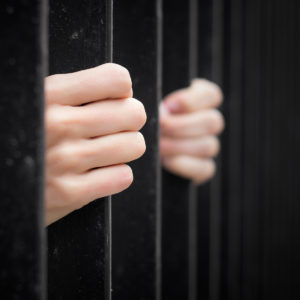Few Americans have given much thought to prisons and jails.
Despite incarcerating the second-largest number of its citizens in the world, jails and prisons are primarily an out-of-sight, out-of-mind phenomenon. The spat of high-profile Donald Trump allies facing indictments brings prisons and jails back into our awareness.
Defendants in the Georgia RICO case should do anything and everything to avoid prison. American prisons are unworldly in the physical and psychological pain they inflict. Not only have we incarcerated more than 2 million citizens but our jails and prisons are much harsher than those of our European counterparts. The “You do the crime, you do the time” philosophy dominates. We don’t spend much time considering the conditions of imprisonment.
When Americans think of jails and prisons, our perception comes mostly from movies, stories of gangs, personal hardship, dramatic escapes and occasional human heroics. Movies do not and cannot capture the emotional anguish and even torture that is commonplace in our jails and prisons. Those under indictment might want to consider the conditions that could be in their futures.
As a newspaper columnist, I have toured four prisons and frequently visited the Chatham County Jail in Savannah, Georgia. As a psychologist, I’ve given workshops at maximum-security prisons.
Entering a prison is unnerving. Belt and shoes off, along with any item on your body, making you feel naked even with clothes on. The feeling of vulnerability is extraordinary, increased by that first locked door closing and the discomfort of knowing you can’t turn back. Your heart rate increases at each step, which tells you that your safety is now in the hands of others. Knowing that you are just a visitor only partially reduces the anxiety.
Imagining this new environment could be your next home is hard to fathom.
Prison grounds are usually sterile, with vegetation of any kind generally absent. Barbed wire, concrete and bleakness are the order of the day. Harsh solid surfaces dominate, as does high-decibel noise bouncing off ceilings and walls wherever inmates congregate.
Few visitors go into prison cells. I’ve been to many. The worst was a space no larger than my current closet. It did not have a window. Older prisons may not have air conditioning in the sweltering South or proper heating in the freezing North. Both inmates and staff suffer in these conditions.
Where you are incarcerated is important, probably as critical as the length of your sentence.
Martha Stewart, convicted of four counts of obstruction of justice and lying to investigators, was sentenced to one year in the Federal Prison Camp in Alderson, West Virginia, considered a country club or cushy setting.
Seventy-one-year-old Bernie Madoff, mastermind of the largest known Ponzi scheme in history, was sentenced to the Federal Correctional Institution near Butner, North Carolina, a medium-level institution, where he died in 2021 at age 82.
Michael Cohen, one of Donald Trump’s former lawyers, went to a medium-security federal prison. Sentenced to three years for campaign finance violations and other crimes, he spent a little over a year in the Otisville Correctional Institution in New York and the remaining time in home confinement, partly because of the COVID pandemic.
Although those guilty of white-collar crimes are usually spared the harshest of prisons or jails, it is not a certainty. Seventy-one-year-old Allen Weisselberg, former chief financial officer of the Trump Organization, served four months at the Rikers Island jail for his role in a decade-long tax fraud.
While minimum- and medium-security prisons are dramatically different, they are not without profound psychological effects. Martha Stewart said of her “country club” prison, “It was horrifying, and no one — no one — should have to go through that kind of indignity, really, except for murderers. It is a very, very awful thing.”
Requests for psychiatric medication in prisons and jails are high, not necessarily from pre-incarceration diagnosis but because of the environment they experience. Depression, clinical anxiety and mania are commonplace. Guilt, loneliness, extreme boredom and fear can take place in even minimum-security prisons and magnify exponentially in the more dangerous environments.
For those who can’t avoid jail or prison, it’s time to be contrite and very polite to the judge.

